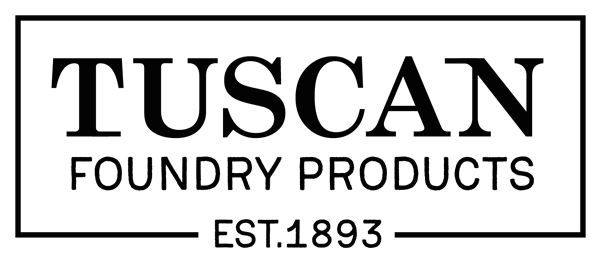

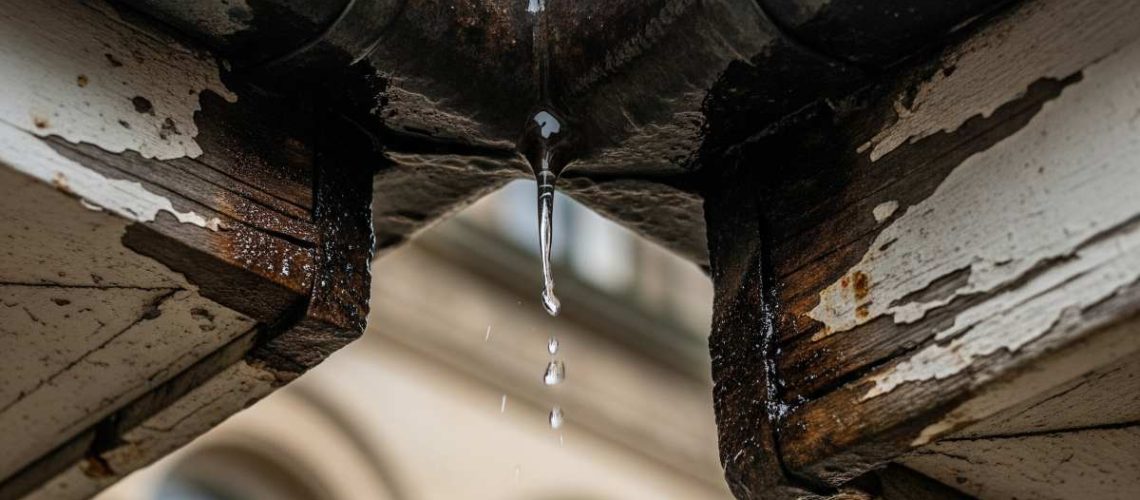
Maintaining the rainwater goods on a period or listed building is one of the most cost-effective ways to protect the structure and preserve its character. Gutters, hoppers and downpipes may seem mundane, but they’re essential in channelling rainwater away from walls, windows and foundations—reducing the risk of rot, damp and frost damage.
In this guide, we cover how to clean, maintain and repair gutter systems sympathetically, including how to seal leaking joints, fit water-saving diverters, and when to seek consent for alterations. We also highlight long-lasting and sustainable solutions from Tuscan Foundry Products, heritage specialists in cast iron rainwater systems.
Most buildings constructed from the 18th century onward—especially those with slate or tiled roofs—feature some form of guttering. These systems help direct water away from roof coverings and into downpipes, preventing it from soaking into masonry or pooling around footings.
In traditionally built homes, especially listed buildings or those in conservation areas, original cast iron guttering is often part of the architectural language. Preserving or sympathetically upgrading these systems is not only a functional necessity but frequently a planning requirement.
Before carrying out any repairs, make sure access is safe. Use a stable ladder for low-level gutters, or hire a cherry picker or scaffold tower for taller buildings.
Begin with a thorough clean. Use a hose to flush out moss and silt, followed by a bristle brush to remove compacted debris. Be careful not to force anything down the pipe—blockages lower down are more complex to deal with.
While you’re up there, inspect for loose tiles, cracks in pointing, or signs of rust and flaking paint on metal components.
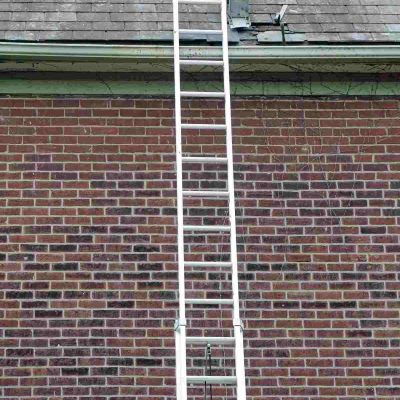
If your property has more recent plastic rainwater goods, repairs are usually straightforward. Damaged brackets or lengths can be replaced easily. Ensure the fall is correctly aligned and seals are seated properly.
Leaking joints in plastic systems can often be fixed using a gutter joint repair kit with neoprene or rubber seals. These compress to form a waterproof barrier—ideal for DIYers and no adhesives required.
If you’re looking to upgrade from plastic to a more traditional aesthetic, consider installing half-round cast iron gutters, which are durable, visually appropriate, and available in a range of profiles.
Cast iron rainwater goods are robust and can last over a century if properly maintained. Begin by removing any flaking paint or surface rust with a wire brush. Once cleaned, apply a rust-inhibiting primer and repaint using a suitable paint for cast iron gutters.
Fixing Leaking Joints
Older cast iron systems often suffer from leaking joints where original seals have deteriorated. There are two primary repair methods:
Neoprene Seals: For compatible systems, new neoprene gaskets can be inserted into joints. These are commonly used in modern gutter fixing kits.
Specialist Gutter Sealant: Clean the joint thoroughly, then apply a flexible polyurethane or mastic-based gutter sealant. This is ideal for traditional systems and provides a long-lasting waterproof seal.
If sections are badly cracked or broken, you may need to replace them. Bespoke replacement gutters can be made to match originals, especially useful for curved bays or towers.
As rainfall becomes more intense and unpredictable in the UK, older systems may not cope with the volume. If water regularly overflows, consider increasing capacity. Larger gutters and downpipes can often be retrofitted without altering the visual character—though listed building consent may be required.
You can browse our full range of rainwater pipes and cast iron hoppers to find a sympathetic upgrade that meets both drainage needs and conservation standards.
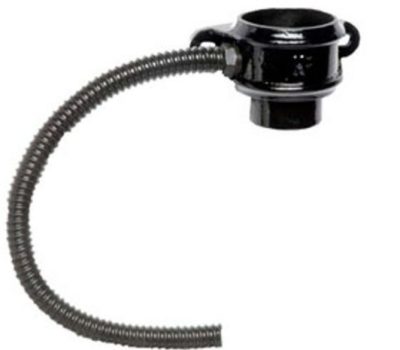
Heritage buildings can be made more sustainable too. One simple step is fitting a rainwater diverter to your downpipe, directing some water into a water butt or tank. These diverters are easy to install and help:
Rainwater collected in this way can be used to fill ponds, water vegetable beds, or even wash garden tools.
For traditional buildings, it’s worth pairing diverters with discreet or antique-style cast iron hoppers and fittings. If you’re looking to keep your gutters clear and functioning, fitting wire balloons at the top of your downpipes will prevent leaves and debris from clogging the system.
To ensure your gutter system performs well year-round:
If you’re unsure whether your repairs will affect a building’s protected status, consult with your local conservation officer before starting.
Some work may be beyond the scope of DIY repairs. In these cases, it’s essential to seek specialist assistance for:
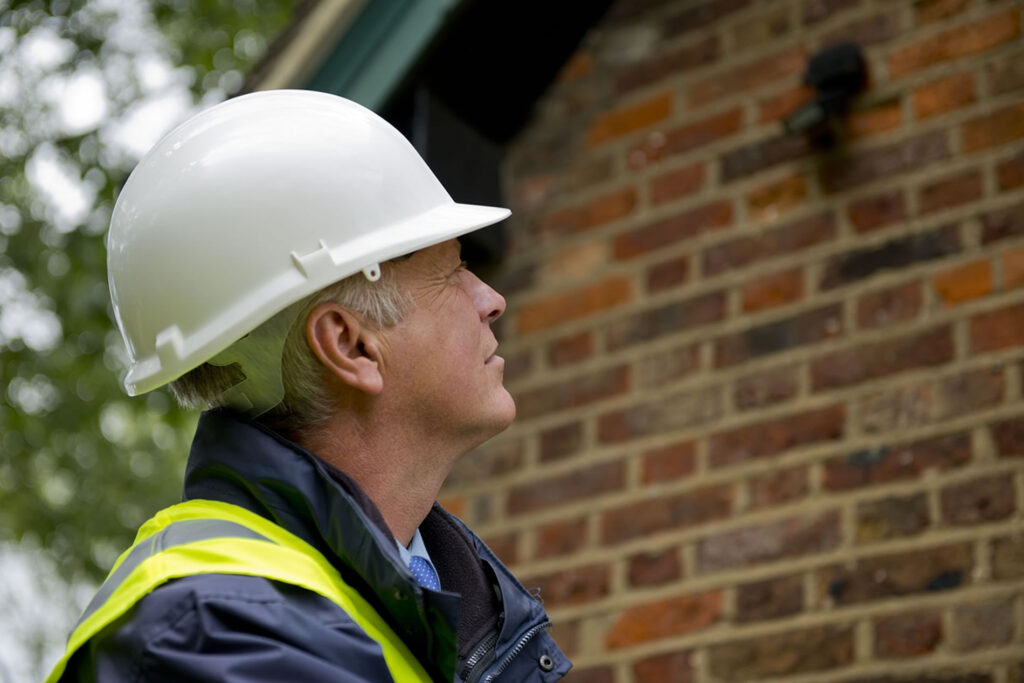
At Tuscan Foundry Products, we specialise in the supply of cast iron gutter systems suitable for listed, period, and conservation buildings. Where original patterns are unavailable, we can also provide bespoke castings that closely replicate historic detailing.
To support this, Tuscan offers a nationwide site visit and survey service, helping to assess the condition of existing installations and accurately specify replacements or upgrades. Our experienced team provides practical advice on sympathetic restoration and product selection tailored to the architectural character of each project. (This service is chargeable)
Regular cleaning, repainting, and resealing of your guttering system can prevent thousands of pounds’ worth of water damage to your property. Whether you’re restoring an original feature or retrofitting for increased capacity and water harvesting, your rainwater system is one of the most valuable tools in preserving your home.
By choosing appropriate materials and suppliers, such as the specialist cast iron systems from Tuscan Foundry Products, you can ensure your repairs are not only practical and compliant—but also in keeping with the historic character of your building.